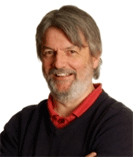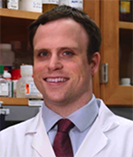Program
Friday, 10 July 2015 – Wicklow Meeting Room 2
07:30 - 09:00
09:00 - 09:15
09:15 - 10:15
10:15 - 10:45
10:45 - 11:10
11:10 - 11:50
11:50 – 12:30
12:30 - 13:30
13:30 - 14:10
14:10 - 14:50
14:50 - 15:30
15:30 - 16:00
16:00 - 16:40
16:40 - 17:05
17:05 - 17:30
17:30 - 18:00
19:30
Registration
Welcome
Keynote: Des Higgins. Making and using extremely large multiple sequence alignments.
Morning break
David Kreil. Setting the context
Hubert Rehrauer. Prognostic value of cross-omics screening for cancer survival.
Marta R. Hidalgo. Functional hallmarks in clear cell renal cell carcinoma grade and stage progression revealed by changes in signalling circuit activities.
Lunch break
Jari Björne. Cancer Progression Classification for Mutation Analysis.
Susmita Datta. Exploring the Importance of Cancer Pathways by Meta-Analysis of Differential Protein Expression Networks in Three Different Cancers.
Pramila Tata. Multi-Omics analysis for understanding the molecular basis of Lung Adenocarcinoma.
Afternoon break
Alejandra Cervera. A pipeline for exploratory and pathway analysis of NGS data.
Lan Hu. Biolfuid exosomes: a new player for genomic profiling.
Djork-Arné Clevert. Rectified Factor Networks for Deep Learning.
Olivier Gevaert. Multi-omics fusion for cancer data.
Conference dinner
Saturday, 11 July 2015 – room t.b.a.
09:05 - 09:15
09:15 - 10:15
10:15 - 10:45
10:45 - 11:10
11:10 - 11:50
11:50 – 12:30
12:30 - 13:30
13:30 - 13:50
13:50 - 14:30
14:30 - 14:50
14:50 - 15:30
15:30 - 16:00
16:00 - 16:20
16:20 - 17:00
17:00 - 17:30
CAMDA Welcome
Keynote: Christopher E. Mason. Leveraging short and long reads for optimal RNA-Sequencing with CAMDA data set #1.
Morning break
Weida Tong. Setting the context
Cankut Cubuk. Signalling circuit activities as mechanism-based features to predict mode of action of chemicals.
Chathura Siriwardhana. Inter-platform Concordance of Gene Expression Data for the Prediction of Chemical Mode of Action.
Lunch break
Serghei Mangul. Examining lost reads to survey the microbiome and immune components of the human body across 43 human sites from 175 individuals.
Pawel P. Labaj. Sensitivity, specificity and reproducibility of RNA-Seq differential expression calls.
Patrik Edén. Unbiased Optimization of Microarray Pre-processing.
Udo Gieraths. Genome-wide detection of intervals of genetic heterogeneity associated with complex traits.
Afternoon break
Aleksandra Gruca. New Gene Ontology term similarity measure - comparison and performance evaluation based on DNA microarray data.
Menno J. Witteveen. In silico phenotyping via co-training for improved phenotype prediction from genotype.
Vote for CAMDA contest awards and closing address
Keynotes
Des Higgins, PhD
Presentation Title: Making and using extremely large multiple sequence alignments.
Short Bio: Des Higgins is professor of Bioinformatics in University College Dublin, Ireland and has been working on sequence alignment and molecular evolution since the mid 1980s. He originated the widely used Clustal package and continues to develop and maintain multiple sequence alignment algorithms and software. He also works on the analysis of high throughput genomics data, especially in the application of multivariate analysis methods for data integration. He has published more than 130 peer-reviewed articles in bioinformatics, sequence alignment and genomics with an h-index of 54.
Christopher E. Mason, PhD
Presentation Title: Leveraging short and long reads for optimal RNA-Sequencing with CAMDA data set #1.
Abstract: To sequence more or not to sequence more? That is the question. Is it better to suffer the slings and arrows of outrageous haplotypes or not? Here we use the SEQC datasets to titrate reads lengths at varying scales to discern the impact of read length on quantification, splicing detection, and detection efficiency, and we show that for expression-based goals, reads generally do not need to go beyond 50bp. However, for splicing detection, longer reads significantly improve one's ability to classify and detect isoform changes. Finally, we comment on the significance of low-abundance isoforms that can reveal new roles of subsets of RNA. These results can help plan experimental design for both large and small-scale RNA-seq studies.
Short Bio: Christopher E. Mason completed his dual B.S. in Genetics and Biochemistry from University of Wisconsin-Madison in 2001, his Ph.D. in Genetics from Yale University in 2006, and his post-doctoral training at Yale Medical School, while also holding a fellowship at Yale Law School. In 2009, Dr. Mason founded his laboratory as an assistant professor at Weill Cornell Medical College in the Department of Physiology and Biophysics and at the Institute for Computational Biomedicine. Professor Mason also holds an appointment in the Tri-Institutional Program on Computational Biology and Medicine between Cornell, Memorial Sloan-Kettering Cancer Center and Rockefeller University and he also has an appointment at the Weill Cornell Cancer Center and the Brain and Mind Research Institute. In 2013, he won the Hirschl-Weill-Caulier Career Scientist Award. In 2014, he won the Vallee Foundation Young Investigator Award, the CDC Honor Award for Standardization of Clinical Testing, and he was just named as one of the “Brilliant Ten” Scientists in the world by Popular Science magazine. In 2015, he became the first WorldQuant Foundation Research Scholar, was recently promoted to associate professor, and his work has been featured across the world in over 300 media outlets.
The scientific program includes keynotes by leading researchers in the field and selected presentations of contest dataset analyses.
The two-day meeting will also feature a social dinner with and opportunities for informal discussions.
The conference will close on Saturday in time for delegates to join to the evening reception of ISMB/ECCB.
Sign up to our low-volume CAMDA 2015 announcements mailing list!
![]() Follow us in twitter
Follow us in twitter


